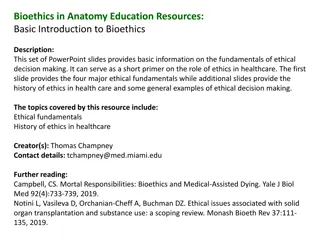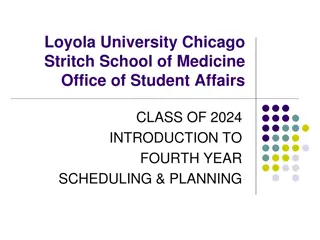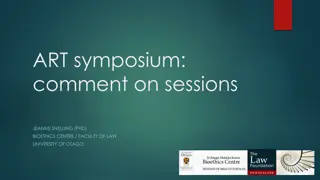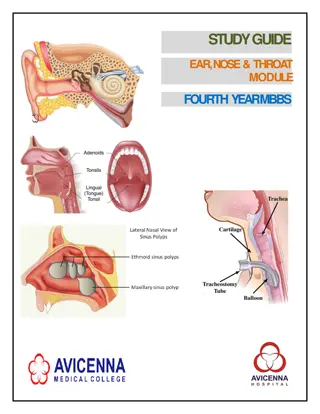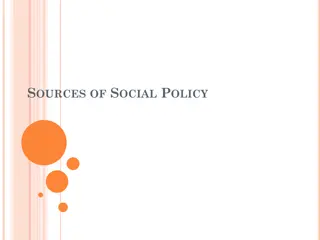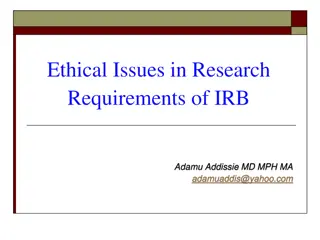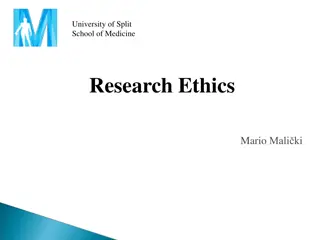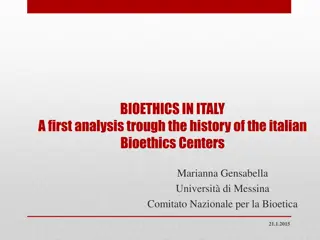Exploring Bioethics: Principles and Applications
Ethics is the foundation of bioethics, a field that delves into the ethical considerations surrounding biological and medical practices. From understanding the essence of ethics to applying principles like respect for autonomy and justice, bioethics navigates complex decisions such as allocating a scarce resource like a heart transplant. The key principles of bioethics include autonomy, beneficence, justice, and nonmaleficence, guiding healthcare professionals in upholding ethical standards in patient care and decision-making processes.
Uploaded on Aug 13, 2024 | 0 Views
Download Presentation

Please find below an Image/Link to download the presentation.
The content on the website is provided AS IS for your information and personal use only. It may not be sold, licensed, or shared on other websites without obtaining consent from the author. Download presentation by click this link. If you encounter any issues during the download, it is possible that the publisher has removed the file from their server.
E N D
Presentation Transcript
Introduction to Bioethics AISHA SALEEM
What is ethics? Ethics: the rules of conduct recognized in respect to a particular class of human actions or a particular group, culture
What is Bioethics? Bioethics: a field of study concerned with the ethics and philosophical implications of certain biological and medical procedures, technologies, and treatments, such as organ transplants, genetic engineering, and care of the terminally ill
A classic bioethical decision One heart available who should get it? 70-year-old woman 40-year-old school principal 17-year old girl
A classic bioethical decision One heart available who should get it? 70-year-old woman 40-year-old school principal 17-year old girl
Basic Bioethics Principles RESPECT for people s rights Autonomy Dignity BENEFICENCE: Benefits must be proportionate to risks Potential harm = potential good
Basic Bioethics Principles JUSTICE: The even distribution of benefits and risks throughout society NONMALEFICENCE: Do no harm Experiment must stop if causes harm.
Bioethical Principles in Detail Autonomy Requires that the patient have autonomy of thought, intention, and action when making decisions regarding health care procedures. Therefore, the decision-making process must be free of coercion or coaxing. In order for a patient to make a fully informed decision, she/he must understand all risks and benefits of the procedure and the likelihood of success. Because ARTs are highly technical and may involve high emotions, it is difficult to expect patients to be operating under fully-informed consent.
Justice The idea that the burdens and benefits of new or experimental treatments must be distributed equally among all groups in society. Requires that procedures uphold the spirit of existing laws and are fair to all players involved. The health care provider must consider four main areas when evaluating justice: fair distribution of scarce resources, competing needs, rights and obligations, and potential conflicts with established legislation. Reproductive technologies create ethical dilemmas because treatment is not equally available to all people.
Beneficence Requires that the procedure be provided with the intent of doing good for the patient involved. Demands that health care providers develop and maintain skills and knowledge, continually update training, consider individual circumstances of all patients, and strive for net benefit.
Non-maleficence Requires that a procedure does not harm the patient involved or others in society. Infertility specialists operate under the assumption that they are doing no harm or at least minimizing harm by pursuing the greater good. However, because assistive reproductive technologies have limited success rates uncertain overall outcomes, the emotional state of the patient may be impacted negatively. In some cases, it is difficult for doctors to successfully apply the do no harm principle.
Reference https://www.britannica.com/topic/bioethics/Social-and-legal-issues







